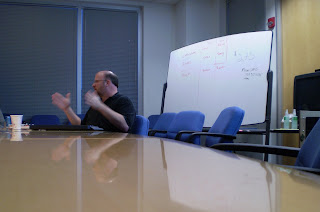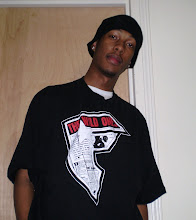
When you think of the power of an athlete you may think of the physical or mental strength that is shown when he is participating in his or her sport. What some may not realize (I only realized this today) that athletes also have the power to changed what an audience will think about first when it comes to news and what the media will set first on their agenda.
There is theory that I learned in class called the
Agenda-setting theory. This is a theory in which people believe that the media have an influence on an audience by determining what news stories would be covered first, how much they are covered, and if they are in fact worthy of the coverage. An example of this is when a media outlet might hide real issues and force us to focus on smaller things (happens in politics and the war situation a lot) due to the coverage the media outlet gives to the "smaller things".
In sports journalism, however, what if it could be proven that athletes, not the media outlets, had this power all along or at least had the ability to use this power to their advantage? What lead to me thinking about this subject happened yesterday on
ESPN. I was watching ESPN News when breaking news flashed below the main screen saying that
Brett Favre is thinking about comming back to the NFL out of retirement. Now besides the ill-feelings I had at the time after hearing this news (I personally think Farve is selfish for starting this again), I sat and witnessed all of the coverage now shift to Farve and the rumors going around about his return to football.
On Sportscenter and the shows following that they all talked about Brett Favre and what he should do, what the NFL should do, and what his team should do all because of the information that they found out which was that Farve said he has an "itch" to play again and that his family is pushing him to do so.
It didn't click until this morning that Favre just changed the whole ESPN agenda that night just by starting rumors. In a couple of minuets Favre exhibited the power make ESPN put all the focus on him and brought his name back into the forefront and
influence the audience to talk about him again.Without these rumors Favre wouldn't even have been mentioned that afternoon (Wednesday, July 2nd) being that he retired four months ago and football fans were getting over him.
This isn't the only example, however. Look at the Kobe Bryant situation last summer. All he did was say "I want to be traded" and immediately he had the attention of all basketball fans and all of the sports media. His story and news about on updates on whether Bryant would get traded or not was immediately set above any story that occurred that summer.
Now-a-days athletes have the power to changed even the media's opinion on certain things. Look at Jose Canseco and his book that told on baseball players who used steroids. A few days after the book became public it was talked about and even referenced in the media when it came to the names that were stated in the book. That book influenced the opinions of the media and of baseball fans on the players named in the book.
All I am saying is maybe when it comes to sports journalism, who determines what news appears first and what the audience focuses is on first, maybe more in the hands of athletes than it is the sports media outlets themselves. Not to say that the sports media has no control over it but I am saying that maybe their control over the situation is lesser than the control that blogs or other national media outlets have.
I believe that sports media just reports on what happens and if an athlete that is prominent enough says something outrageous, he thrusts himself into the spotlight and to the top of the media world's agenda.
Think about it...










